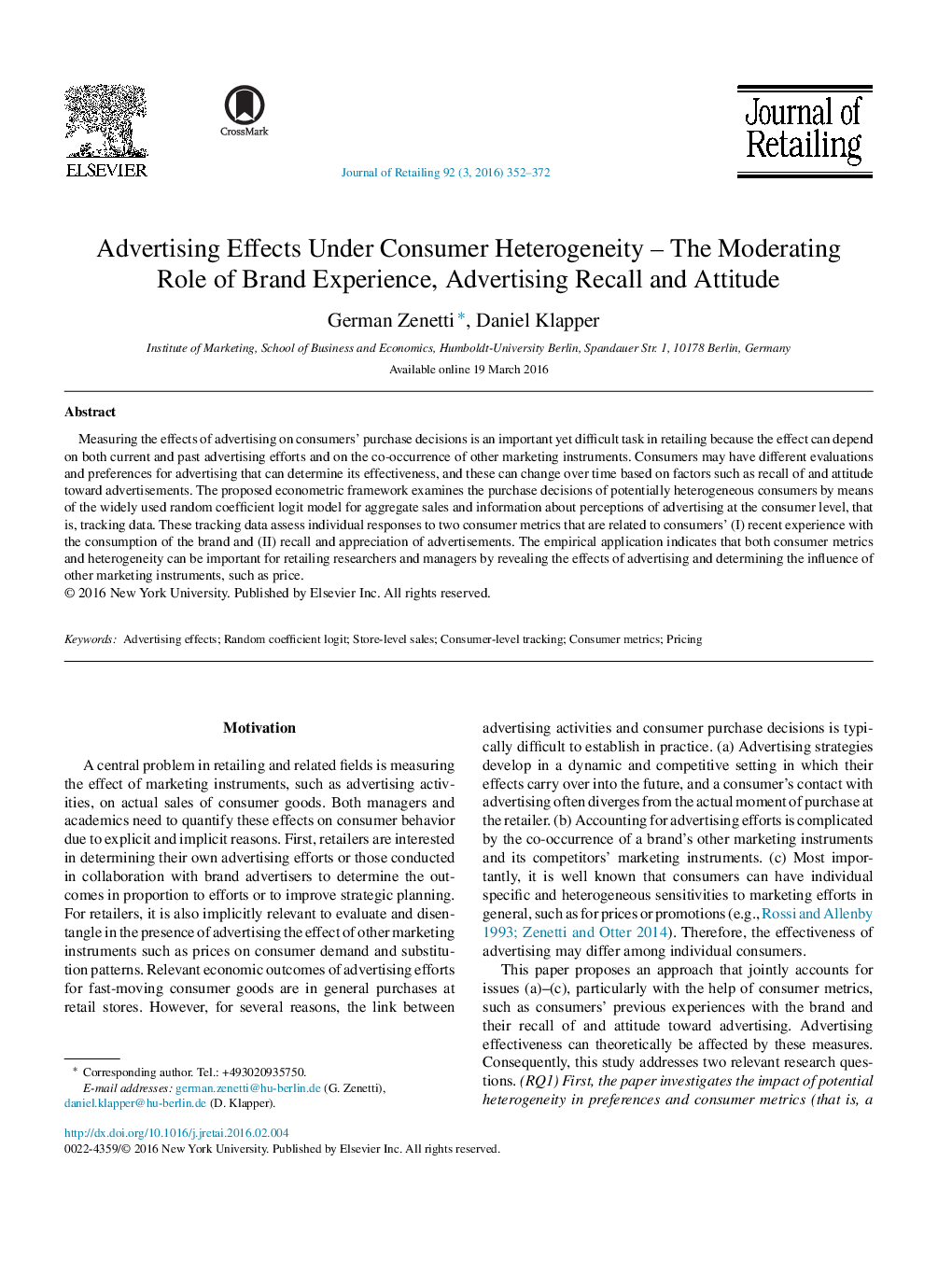| Article ID | Journal | Published Year | Pages | File Type |
|---|---|---|---|---|
| 886229 | Journal of Retailing | 2016 | 21 Pages |
•Investigation of advertising effects on heterogeneous consumers’ purchase decisions.•Heterogeneity of consumer preferences is found to be relevant in general and with respect to two hypothesized measures of consumer metrics in particular.•Advertising effectiveness and managerial implications can be better derived this way.•Elasticities of demand are noteworthy improved (considering consumer heterogeneity and consumer metrics).
Measuring the effects of advertising on consumers’ purchase decisions is an important yet difficult task in retailing because the effect can depend on both current and past advertising efforts and on the co-occurrence of other marketing instruments. Consumers may have different evaluations and preferences for advertising that can determine its effectiveness, and these can change over time based on factors such as recall of and attitude toward advertisements. The proposed econometric framework examines the purchase decisions of potentially heterogeneous consumers by means of the widely used random coefficient logit model for aggregate sales and information about perceptions of advertising at the consumer level, that is, tracking data. These tracking data assess individual responses to two consumer metrics that are related to consumers’ (I) recent experience with the consumption of the brand and (II) recall and appreciation of advertisements. The empirical application indicates that both consumer metrics and heterogeneity can be important for retailing researchers and managers by revealing the effects of advertising and determining the influence of other marketing instruments, such as price.
Graphical abstractFigure optionsDownload full-size imageDownload as PowerPoint slide
